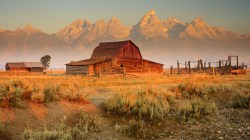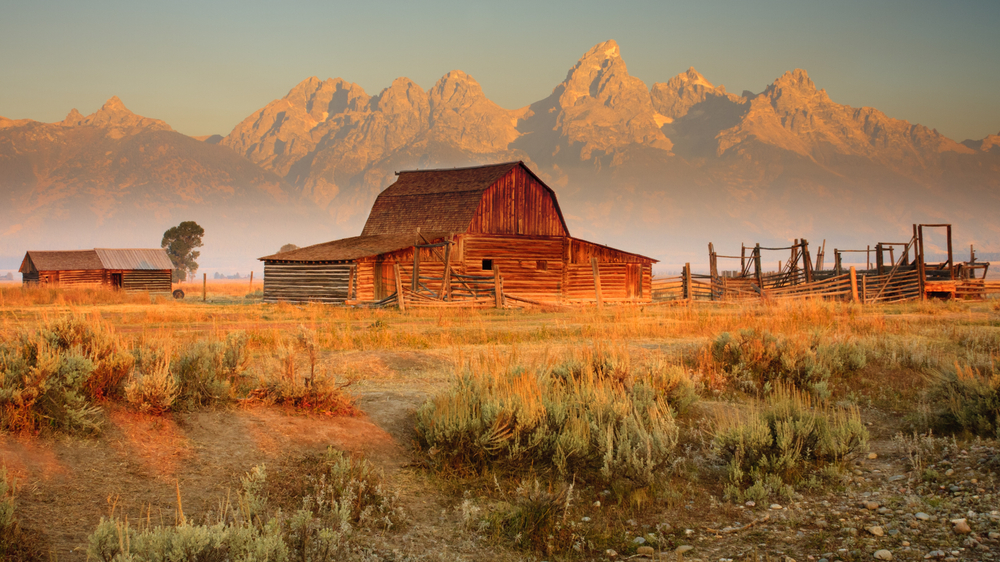
Shutterstock / Julie LubickWyoming, where the government knows what’s in fracking fluid but won’t tell you.
Halliburton and other companies are pumping chemicals into the ground beneath Wyoming to lubricate cracks created during fracking, which allows sand to slide in and hold the cracks open so natural gas can be extracted. Many residents, property owners, and environmentalists would like to know what mixture of chemicals is being used. The state of Wyoming knows, thanks to a 2010 rule requiring companies to disclose the information to the state government, but officials refuse to release that information to the public.
And now a county judge has weighed in, ruling against the public and in favor of energy company secrecy. From the AP:
A judge in Casper has sided with the state of Wyoming and ruled against environmentalists who sought to obtain lists of the ingredients that go into hydraulic fracturing fluids.
Environmental groups had requested the ingredient lists from the Wyoming Oil and Gas Conservation Commission, arguing that the public needs to know what chemicals companies are putting underground.
They were denied on the grounds that the lists are trade secrets that may be withheld under Wyoming’s open records law. Natrona County District Judge Catherine Wilking has upheld the denial, ruling that the state official who withheld the information acted reasonably.
Environmentalists are mulling appealing this to a higher court. Meanwhile, Wyoming Gov. Matt Mead (R) couldn’t be happier with the news that his constituents will remain ignorant of the chemicals that have already seeped into their groundwater.
“This decision recognizes the importance of a state-based approach to regulating hydraulic fracturing — one that balances this important method for producing energy with environmental protection,” [Mead] said in a prepared statement Monday.
Which is particularly sad news given that the judge agreed that the environmentalists’ arguments had “substantial merit,” but wrote in her ruling that “the court feels these competing concerns are best addressed through legislative action, or further rule promulgation and are not properly within the court’s purview.”



